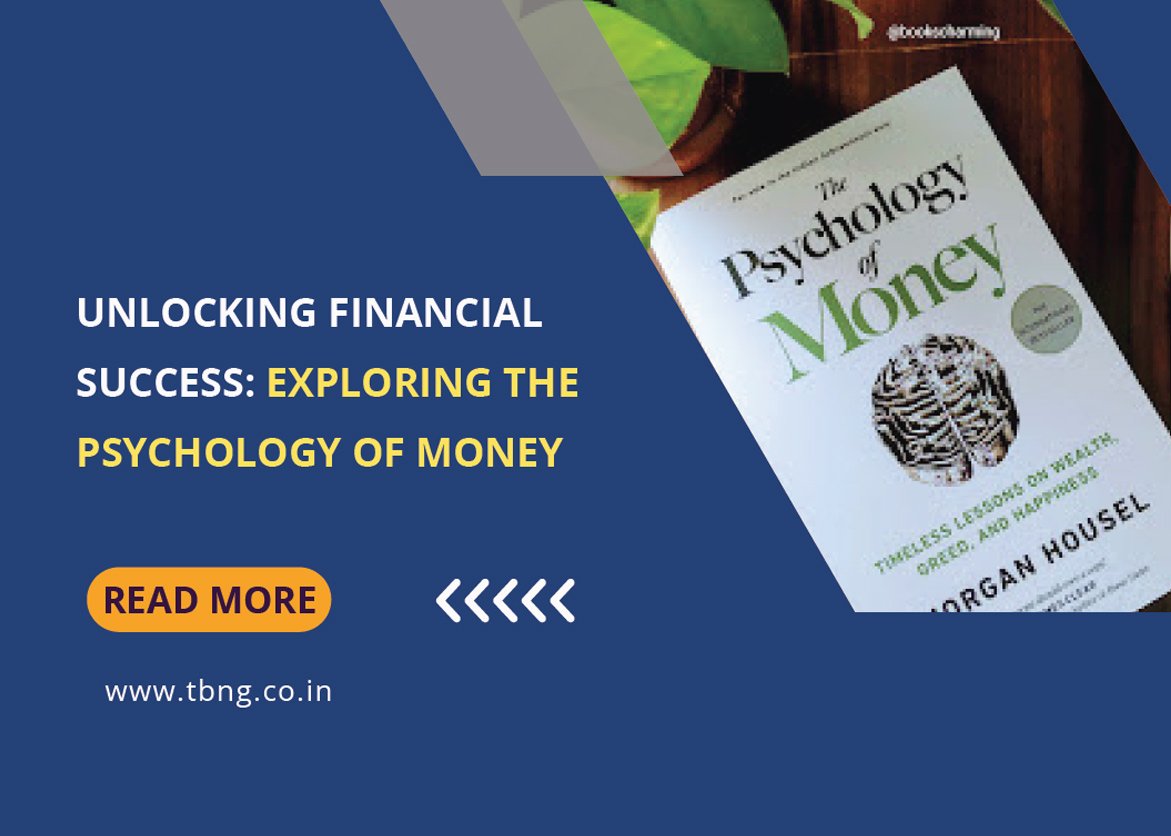We are pleased to introduce “The Psychology of Money” by Morgan Housel, a remarkable book that delves into the intricate interplay between money and human behaviour. Housel, a highly regarded financial writer with extensive experience, explores the psychological aspects of money management, unveiling profound insights that challenge conventional wisdom. Through engaging storytelling and thought-provoking anecdotes, Housel prompts investors to revaluate their notions of wealth, success, and the pursuit of financial well-being.
Here are a few takeaways we would like to share with you:
Takeaway 1: Time is the ultimate asset in wealth creation.
One of the most significant takeaways from this book is the recognition of time as the most valuable asset for wealth creation. Housel effectively illustrates this concept by contrasting the lives of two individuals: one who prioritizes maximizing income at the expense of personal time and happiness, and another who focuses on aligning their financial decisions with their long-term goals and aspirations. As financial advisors, we consistently emphasize how recognizing the value of time is pivotal in shaping a person’s financial well-being, as it allows for the compounding effect to work its magic, amplifying wealth accumulation over the long term. By embracing the power of time and making strategic financial decisions, investors can maximize their growth opportunities and secure a stronger financial future.
Takeaway 2: The power of disciplined, long-term investing.
Housel underscores the power of disciplined, long-term investing through the lens of compounding. By showcasing case studies of individuals who consistently invested over time, he demonstrates how even modest amounts can grow significantly due to the compounding effect. As financial advisors, we encourage investors to adopt a long-term investment strategy and emphasize the benefits of consistent contributions to their portfolios. This approach helps them build wealth steadily and enjoy the advantages of compounding over time.
Takeaway 3: Recognizing the role of luck and risk in financial outcomes.
Housel brings attention to the often-underestimated role of luck in financial success or failure. This takeaway is particularly important for investors, as it encourages them to have a realistic perspective on their investment performance. By understanding that luck can play a significant part in outcomes, investors can better evaluate their own investment decisions and not solely attribute success or failure to their own skills. This understanding promotes a more rational investment approach and helps investors avoid overconfidence or undue disappointment.
Takeaway 4: Navigating emotions and biases in financial decision-making.
The book deep-dives into the emotional and cognitive biases that influence financial decision-making. Housel’s exploration of biases such as loss aversion, overconfidence, and recency bias provides valuable insights for investors. By recognizing these biases, investors can make more rational decisions, avoiding emotionally driven choices that may negatively impact their wealth accumulation.
As financial advisors, we play a vital role in guiding investors through the complex landscape of emotions and biases that often influence financial decision-making. By fostering awareness and providing practical strategies, we empower investors to make rational choices that align with their long-term financial goals, ultimately leading to more successful outcomes and greater financial well-being.
Takeaway 5: Defining personalized measures of financial success.
Housel challenges the conventional notion of financial success, urging individuals to define their own measures based on personal values and aspirations. As financial advisors, this takeaway is invaluable in helping investors align their financial goals with their unique life objectives. By encouraging investors to define success on their terms, we can create tailored financial plans that prioritize their individual needs and desires, ultimately leading to greater satisfaction and fulfilment.
Conclusion
“The Psychology of Money” is an indispensable resource for both financial advisors and their investors. Morgan Housel’s profound insights into the psychological aspects of money provide a solid foundation for making sound financial decisions. By incorporating the book’s takeaways into our advisory practice, we can guide investors toward wealth accumulation strategies that are not only financially rewarding but also personally meaningful. We highly recommend this book to any financial advisor seeking to enhance their understanding of the intricate interplay between psychology and wealth creation.






